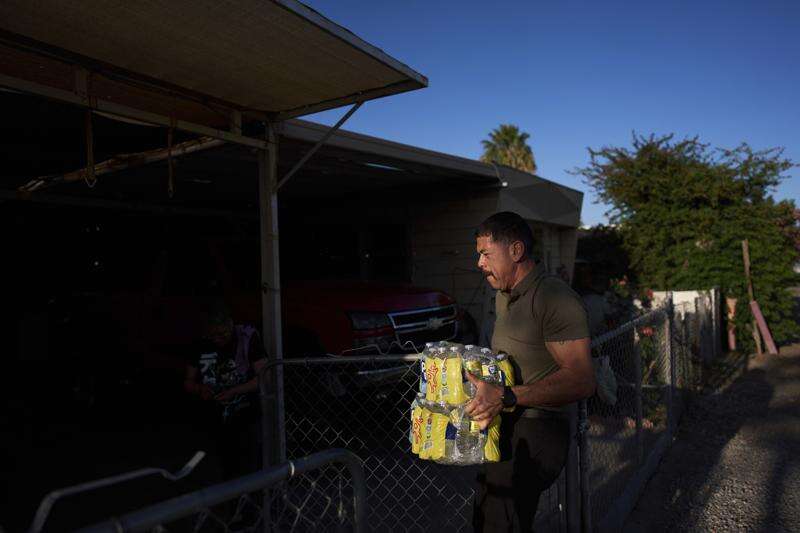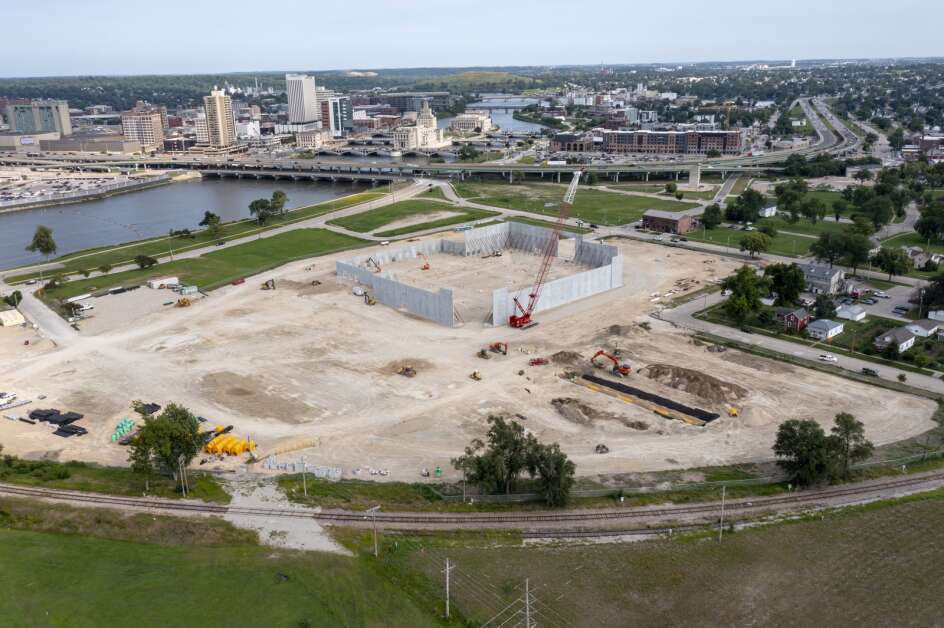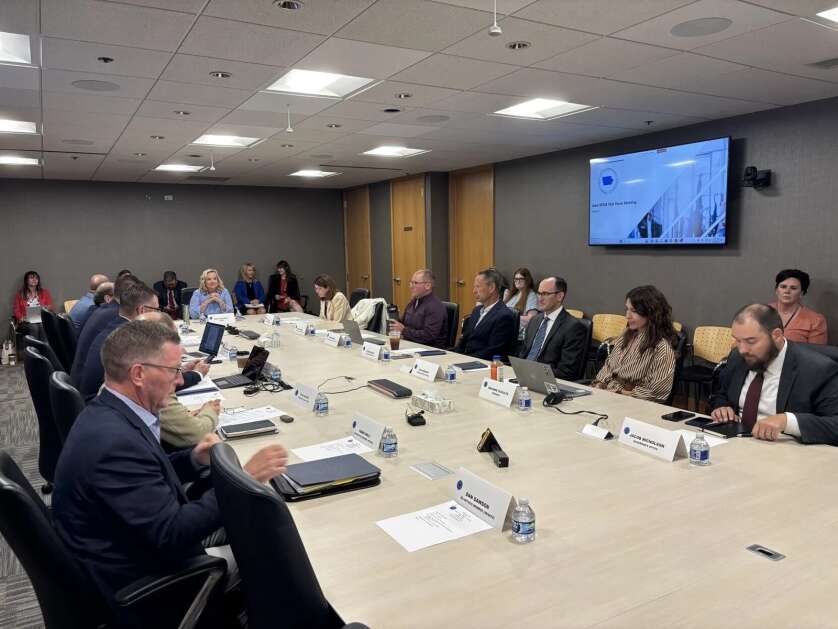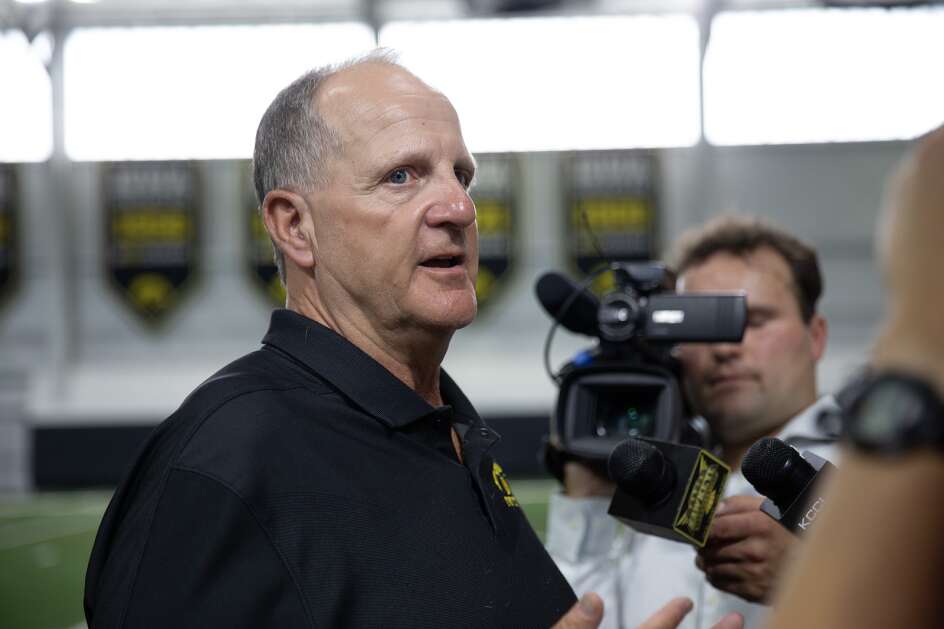The Gazette uses Instaread to provide audio versions of its articles. Some words might not be spoken correctly.
Colt Smith has worked with Utah’s Division of Drinking Water for 14 years, and the worst water he has encountered occurred at a mobile home park. Before state officials found out about the contamination, residents had been drinking the water for years.
Up to ten times the government limit of cancer-causing arsenic was present in the well water. For almost ten years, Smith had to enforce a no-drinking policy in the rural park.
It is referred to us by the Health Department as… Why do you guys not regulate it? He claimed that we were unaware of its existence.
Millions of people living in mobile home parks can’t always rely on the fundamental safeguards provided by the Safe Drinking Water Act, which was created more than 50 years ago to guarantee that Americans’ water is free of lead, harmful germs, and other hazardous materials.
Nearly 70% of mobile home parks with their own water systems broke safe drinking water regulations in the last five years, according to statistics from the Environmental Protection Agency, which is higher than the rate for utilities that provide water to cities and municipalities, according to an Associated Press review. Furthermore, not all parks are included in the EPA database, thus the issues are probably far more severe.
Even in parks that receive water from an external source, like a city, the pure water that enters can get contaminated if it travels through faulty infrastructure before getting to the taps of the locals. The issues can go unnoticed because the EPA often doesn’t mandate that this water be analyzed or regulated.
According to an AP analysis of state policies, Utah is among the few states that have taken action with its own regulations.
When the Safe Drinking Water Act was first being drafted in the 1970s, the idea was that as long as the source was safeguarded, everything would be alright by the time it reached the tap. According to Smith, that’s simply not how it operates.
The challenge of being halfway homeowners
Raw sewage flooded a bathtub at a mobile home park in Colorado. In Iowa, the water looked like coffee, scaring locals off drinking it and spoiling laundry they could hardly afford to replace. In a Michigan park, the taps frequently ran empty and the water tasted like tea. Concerned about arsenic, a family in California fills their kitchen with boxes of bottled water.
Suggested Reading
Tests show I.C. mobile home park water has high levels of manganese
In the United States, almost 17 million people reside in mobile homes. Some are contented retirees from the Sun Belt. For many others with low earnings, mobile homes represent a unique chance to purchase a house.
It helps to keep in mind that individuals frequently own their homes but rent the land on which they are located in order to comprehend why water in the parks may be so problematic. Moving a mobile home is costly and challenging, despite the name. According to Esther Sullivan, a sociology professor at the University of Colorado in Denver who lived in multiple mobile home parks while doing research for a book, that indicates they are partly homeowners. Because all of their money is invested in their home, residents frequently tolerate landlords’ truly appalling property care, she said.
Pamela Maxey, 51, of Kalamazoo, Michigan, claimed that until she stayed in a hotel while advocating for improved safeguards for mobile home parks at her state Capitol last year, she had forgotten what it was like to have access to clean, dependable water. She had lived in a park for eight years by that point, where sewage backed up into houses and the tap water occasionally flowed weakly or discoloredly.
She remarked, “I don’t have to jump in here and squint my eyes closed the entire time and make sure water doesn’t get in my mouth because I don’t know what’s in it.” I didn’t understand this until I entered the bathroom to take a shower. When I went to brush my teeth, I simply turned on the faucet and used the water that was coming from it. It’s been more than a year since I was able to accomplish that.
Victoria Silva, a premed student in Fort Collins, Colorado, believes that during her three years there, the water at Harmony Village Mobile Home Park, where she resides, went out or lost pressure 20 to 30 times.
According to Silva, people don’t understand how much water they use until they have to flush, wash their hands, or prepare pasta and the water is turned off for five minutes.
According to the park’s owner, a certified expert makes sure that water is checked and maintained and that outages are kept to a minimum.
Small water companies, serial problems
There are about 50,000 water utilities in the US, the majority of which serve rural and small towns. Compared to the few major utilities that service cities, many have a harder time finding qualified personnel and finance, and they are more likely to break clean water regulations. Mobile home parks, however, stand out even amid the struggling minor utilities.
According to the AP study, throughout the previous five years, almost half of these parks either neglected to conduct a mandatory test for at least one contaminant or improperly reported the results. Additionally, they are much more likely to violate safe drinking water regulations again.
However, it’s not the whole tale. The EPA doesn’t keep good track of mobile home park violations, therefore it’s impossible to determine the actual rates. The data included in the agency’s tap water violation database comes from states that frequently fail to classify mobile home parks appropriately.
Only four tiny water systems were found to be part of mobile home parks when Smith initially checked Utah’s database in response to an AP request for data from all 50 states. He found 33 more using a few keyword searches.
Some parks may be totally unregulated and aren’t included in the databases at all.
When EPA investigators were out looking into extremely high levels of arsenic in the tap water at Oasis Mobile Home Park in the Southern California desert on a July day in 2021, they discovered the issue was far more widespread.
As we drove around, we genuinely thought, “Wait a minute, there are a lot of mobile home parks!” Amy Miller, the former head of enforcement for the Pacific Southwest region at EPA, stated.
They had not paid much attention to the water in these other parks. Testing at some revealed that the water that had been supplied to households for years contained significant amounts of the carcinogen arsenic.
The number of parks that go undetected is impossible to count. The majority of states claim to find very few of them and are not actively searching for them. Officials in Colorado discovered 79 parks with an unknown water supply after the state passed a new rule requiring water testing at all mobile home parks. That represents almost 10% of the state’s total number of parks.
Pipes like spaghetti in the ground
Even if the water that serves the park is pure when it enters the system, many parks have decades-old pipes that can lead to ongoing water issues.
Mobile home parks are more likely to have subpar and badly built pipes, according to Jake Freeman, engineering director of Central States Water Resources, a private utility business located in Missouri that specializes in assuming control of local water systems in 11 states.
According to him, it’s frequently difficult to locate the piping in mobile home parks since they just avoid any obstacles. It resembles spaghetti spread out on the ground.
According to Freeman, the business discovered pipes at parks it had taken over that were hardly hidden after a significant winter storm ravaged Texas in 2021. A few of them were not laid to rest.
Water lines may get contaminated and pressure may drop when pipes burst and leak. Furthermore, parks can have standing water where pipes terminate or water remains unutilized, which raises the possibility of bacterial growth.
In North Carolina, where mobile home communities account for nearly 40% of all water systems, Rebecca Sadosky is the chief of public water supply. When purchasing a park, owners may not always be aware that they are also managing a little utility, according to her.
“I believe they are unaware that they are entering the water industry,” she remarked.
It doesn t have to be like this
Utah is a rare state that enforces safe drinking water standards even within mobile home parks that get their water from another provider, according to AP s survey of states. A small number of other states like New Hampshire have taken some steps to address water safety in these parks, but in most states frustrated residents may have no one to turn to for help beyond the park owner.
In Colorado, when Silva asked officials who enforces safe drinking water rules, I just couldn t get clear answers.
Steve Via, director of federal regulations at the American Water Works Association utility group, argued against regulating mobile home parks that get their water from a municipality, saying that would further stretch an already taxed oversight system. And if those parks are regulated, what s to stop the rules from extending to the privately owned pipes in big apartment buildings the line has to be drawn somewhere, he said.
Via said residents of parks where an owner refuses to fix water problems have options, including going to their local health departments, suing or complaining publicly.
Silva is among the advocates who fought for years to change Colorado s rules before they succeeded in passing a law in 2023 that requires water testing in every mobile home park. It gives health officials the ability to go beyond federal law to address taste, color and smell that can make people afraid to drink their water, even when it s not a health risk. The state is now a leader in protecting mobile home park tap water.
Smith, the Utah environmental scientist, said stopping the contaminated water flowing into the mobile home park and connecting it to a safe supply felt like a career highlight.
He said Utah’s culture of making do with scarce water contributed to a willingness for stronger testing and regulations than the federal government requires.
There s sort of the communal nature of like, everybody should have access to clean water, he said. It seems to transcend political ideologies; it seems to transcend religious ideologies.






